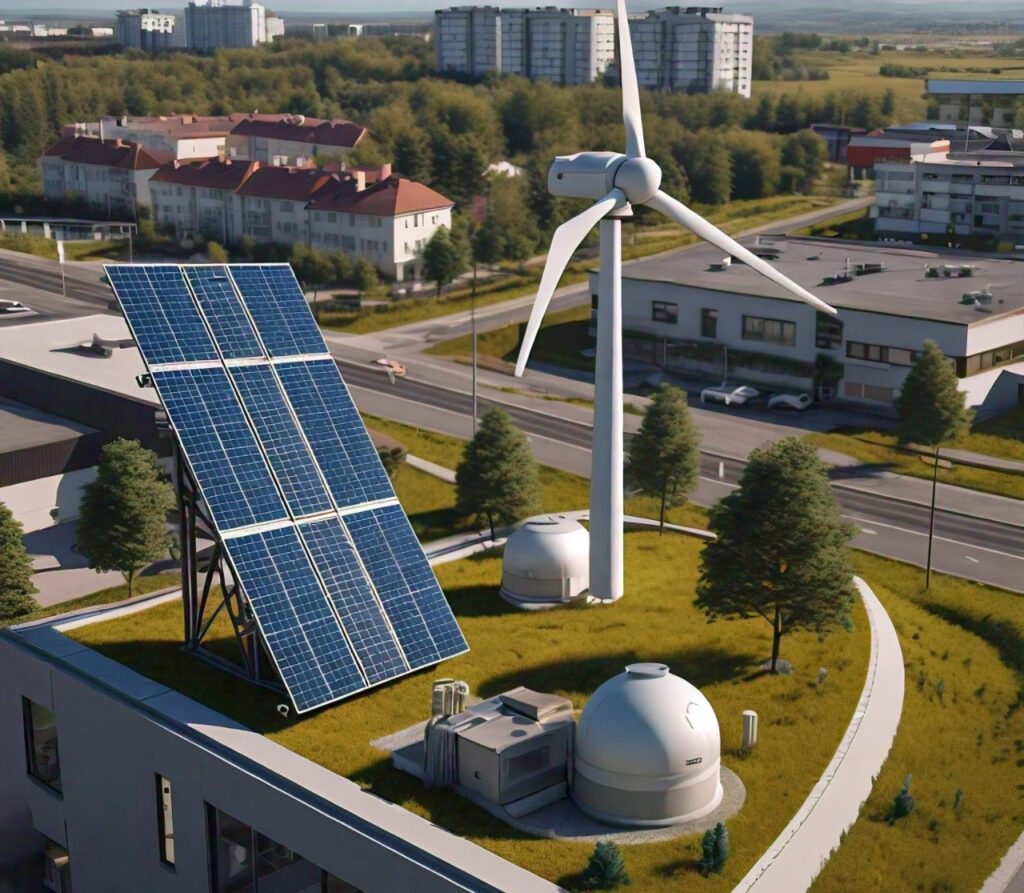Energy investment emerging markets are characterized by rapid economic growth, increasing industrialization, and a burgeoning middle class. These countries often present unique opportunities for investment, particularly in the energy sector, which is pivotal for driving sustainable economic development. As populations expand and urbanization accelerates, the demand for reliable and affordable energy sources becomes critical.
Energy investments in these markets not only contribute to meeting this demand but also play a significant role in fostering economic resilience and enhancing quality of life. By developing robust energy infrastructures, emerging economies can improve their productivity, attract foreign direct investment (FDI), and stimulate job creation.
Moreover, the transition towards renewable energy sources is reshaping the investment landscape. Countries are increasingly recognizing the importance of sustainable energy solutions, which not only mitigate environmental impacts but also create new economic opportunities. As global awareness of climate change grows, investments in clean energy technologies are not just beneficial; they are essential for long-term economic stability and growth.
In this article, we will explore the current landscape of energy investments in emerging markets, their economic impact, the challenges faced, and strategies for successful investment. By understanding these dynamics, Energy Sector Professionals can better navigate the complexities of investing in these promising yet challenging environments.
Current Landscape of Energy Investments in Emerging Markets
In recent years, energy investments in emerging markets have seen significant growth, driven by both domestic and foreign investors. According to recent reports, global investment in renewable energy projects reached record highs, with emerging markets accounting for a substantial share. Countries in Asia, Africa, and Latin America are increasingly attracting capital due to their abundant natural resources, favorable policies, and growing energy needs.
Key Players in the Market
The landscape is populated by a mix of local and international players. Local companies are often more familiar with the regulatory environment and cultural nuances, while international firms bring in capital, technology, and expertise. Notable investors include multinational corporations, development banks, and private equity firms, all seeking opportunities in sectors like solar, wind, and hydroelectric power.
Types of Energy Investments
Renewable Energy:
Solar and wind energy projects are leading the way, with countries like India and Brazil making substantial investments. These projects not only address energy demands but also help reduce carbon footprints.
Fossil Fuels:
Despite the global shift towards renewables, fossil fuel investments remain significant, particularly in oil and gas-rich regions such as the Middle East and parts of Africa. These investments continue to provide essential energy supplies while also generating revenue for governments.
Infrastructure Development: Investments in energy infrastructure, including transmission and distribution networks, are crucial for ensuring that energy generated reaches consumers efficiently. This sector presents numerous opportunities, especially in countries with underdeveloped energy grids.
The convergence of these trends highlights a dynamic investment landscape in emerging markets, where opportunities abound for Energy Sector Professionals willing to navigate the complexities and challenges inherent in these regions.

Economic Impact of Energy Sector Investments
Job Creation
One of the most significant benefits of energy sector investments in emerging markets is job creation. Large-scale energy projects, whether in renewable energy or traditional fossil fuels, require a substantial workforce for construction, operation, and maintenance. For instance, the development of a solar farm can create hundreds of jobs during its construction phase and ongoing employment during its operational life. This influx of employment opportunities helps reduce poverty and stimulates local economies, contributing to overall economic stability
Infrastructure Development
Energy investments often lead to broader infrastructure development. Building energy facilities necessitates improvements in transportation, communication, and utility services. As energy projects progress, they can catalyze the development of roads, railways, and ports, enhancing connectivity and accessibility. Improved infrastructure not only benefits the energy sector but also supports other industries, fostering comprehensive economic growth across various sectors.
Increased Energy Access
Access to reliable energy is crucial for economic development. Energy investments in emerging markets help bridge the gap in energy availability, particularly in rural and underserved areas. By expanding energy access, businesses can operate more efficiently, education can improve through better lighting and technology, and healthcare services can become more effective. This increased access contributes significantly to enhancing the quality of life for millions and supports the overall economic framework of these countries.
Attracting Further Investments
Successful energy projects often serve as a magnet for additional foreign direct investment. When investors see tangible results from initial energy investments, they are more likely to consider further opportunities in the region. This multiplier effect can lead to an influx of capital across various sectors, thus enhancing economic growth. Moreover, as emerging markets develop a reputation for stability and profitability in the energy sector, they become increasingly attractive to global investors seeking new opportunities.
Economic Resilience
Energy investments bolster economic resilience by diversifying energy sources and reducing dependence on a single type of energy. In emerging markets, this diversification is critical, especially in regions vulnerable to price fluctuations in fossil fuels. By investing in renewables alongside traditional energy sources, countries can create a more stable and sustainable energy portfolio, mitigating the risks associated with energy supply disruptions.
In summary, the economic impact of energy sector investments in emerging markets extends far beyond the immediate benefits of energy production. By fostering job creation, infrastructure development, increased energy access, and attracting further investments, these projects are essential for driving sustainable economic growth and enhancing the overall quality of life in these regions.

Challenges and Risks in Energy Investments
Regulatory Barriers
One of the primary challenges facing energy sector investments in emerging markets is navigating complex regulatory environments. Often, these markets have evolving laws and policies that can be inconsistent or lack clarity. Investors may encounter issues such as:
Permitting Delays: Obtaining necessary permits can be a lengthy and bureaucratic process, delaying project timelines and increasing costs.
Changing Regulations: Frequent changes in regulations can create uncertainty, making it difficult for investors to plan long-term strategies.
Lack of Transparency: In some cases, regulatory frameworks may lack transparency, leading to concerns about corruption or favoritism in awarding contracts.
To mitigate these risks, investors must conduct thorough due diligence and engage with local legal experts to understand the regulatory landscape better.
Political and Economic Instability
Political instability can pose significant risks for energy investments in emerging markets. Factors such as:
- Government Changes: Shifts in political leadership can lead to changes in energy policy that affect existing investments.
- Civil Unrest: Protests or conflicts can disrupt operations and put investments at risk.
- Economic Shocks: Economic downturns can lead to currency devaluation, inflation, or reduced consumer demand, impacting energy projects.
Investors should assess the political climate and economic indicators before entering a market, considering scenarios that could affect their investments.
Market Volatility
Energy markets are inherently volatile, influenced by global supply and demand dynamics, geopolitical tensions, and technological advancements. The following factors contribute to this volatility:
- Price Fluctuations: Changes in global oil and gas prices can significantly impact the economic viability of projects, especially those reliant on fossil fuels.
- Competition from Renewables: As renewable technologies become cheaper and more accessible, traditional energy investments may face increased competition, affecting profitability.
Investors should adopt risk management strategies, such as diversifying their portfolios and incorporating flexible operational practices to adapt to market changes.
Infrastructure Limitations
While energy investments can lead to infrastructure development, existing limitations can pose challenges. Many emerging markets may have:
- Underdeveloped Grids: Inadequate transmission and distribution systems can hinder the efficient delivery of energy, leading to losses and inefficiencies.
- Limited Access to Financing: Local institutions may lack the capacity to provide the necessary financing for large-scale projects, making it difficult to secure funding.
Addressing infrastructure limitations often requires collaboration with governments and international organizations to ensure that investments are supported by robust systems.
Environmental Concerns
Energy projects, particularly those involving fossil fuels, can raise environmental concerns that may attract public opposition or regulatory scrutiny. Issues such as:
- Pollution and Emissions: Increased awareness of climate change has led to greater scrutiny of projects that could negatively impact the environment.
- Community Impact: Local communities may resist projects that threaten their land, resources, or way of life.
Investors must prioritize sustainable practices and engage with communities early in the project lifecycle to address concerns and build support.
Also Read: Why Sustainable Development Is Key to the Future of Emerging Markets
Strategies for Successful Investment
Conducting Market Research
Thorough market research is the foundation of successful energy investments in emerging markets. Professionals should focus on:
- Economic Analysis: Evaluating the economic conditions, including GDP growth rates, inflation, and energy consumption patterns, can help identify potential opportunities and risks. Understanding the local economy’s structure will aid in assessing the demand for energy and the viability of various projects.
- Regulatory Environment: Detailed analysis of the legal and regulatory framework is essential. This includes understanding existing laws, potential changes, and the processes for obtaining permits. Engaging with local legal experts can provide insights into navigating the complexities of the regulatory landscape.
- Market Trends: Staying abreast of global and regional energy trends, such as the transition to renewables or technological advancements, helps investors identify sectors poised for growth. Monitoring competitor activities can also reveal market gaps and opportunities.
Building Local Partnerships
Establishing strong partnerships with local stakeholders is crucial for success in emerging markets. Key strategies include:
- Collaborating with Local Firms: Partnering with established local companies can provide valuable local knowledge, resources, and networks. These firms often have a better understanding of the market dynamics and can help navigate regulatory hurdles.
- Engaging with Communities: Building relationships with local communities fosters goodwill and can mitigate opposition to projects. Engaging in community development initiatives and ensuring that local populations benefit from energy projects can create a supportive environment.
- Government Relationships: Developing strong ties with government officials can facilitate smoother project approvals and provide insights into policy changes. Active engagement in public-private dialogues can also enhance collaboration on energy initiatives.

Leveraging Technology
Technology plays a pivotal role in enhancing the efficiency and sustainability of energy investments. Strategies to leverage technology include:
- Adopting Innovative Solutions: Utilizing advanced technologies such as smart grids, energy storage systems, and digital monitoring tools can optimize operations and reduce costs. These technologies improve reliability and can enhance energy access in underserved areas.
- Investing in Research and Development: Committing resources to R&D can lead to the development of new technologies tailored to the specific needs of emerging markets. Innovations in renewable energy technologies, such as solar PV and wind turbine efficiency, can provide a competitive edge.
- Utilizing Data Analytics: Implementing data analytics to monitor energy production, consumption patterns, and market trends allows investors to make informed decisions. Predictive analytics can help anticipate market shifts and optimize investment strategies.
Understanding Financing Options
Securing adequate financing is crucial for successful energy projects. Strategies include:
Exploring Diverse Funding Sources: Investors should consider various funding options, including equity financing, debt financing, and public-private partnerships. Engaging with development banks and international financial institutions can provide access to capital and favorable financing terms.
Utilizing Incentives: Many emerging markets offer incentives for renewable energy investments, such as tax breaks, grants, or feed-in tariffs. Understanding and leveraging these incentives can enhance project viability and return on investment.
Creating Financial Models: Developing robust financial models that account for various scenarios, including price volatility and regulatory changes, can help assess project feasibility and attract investors.
Risk Management Strategies
Effective risk management is essential for navigating the uncertainties associated with energy investments. Key strategies include:
- Diversification: Spreading investments across different projects, energy sources, and geographical regions can mitigate risks associated with market volatility and regulatory changes.
- Contingency Planning: Developing contingency plans for potential challenges, such as supply chain disruptions or regulatory shifts, ensures that investors are prepared to respond swiftly.
- Insurance and Hedging: Utilizing insurance products to protect against specific risks, such as political risk or equipment failure, can safeguard investments. Hedging strategies can also be employed to manage exposure to price fluctuations in energy markets.
Future Outlook for Energy Investments in Emerging Markets
Emerging Trends
The landscape of Energy investment emerging markets is rapidly evolving, driven by technological advancements, regulatory changes, and shifting consumer preferences. Several key trends are shaping the future:
Accelerated Transition to Renewables: With the global push for decarbonization, emerging markets are increasingly investing in renewable energy sources. Countries are setting ambitious targets for solar, wind, and hydroelectric power, often supported by international funding and partnerships. For instance, nations like India and Brazil are leading the way in large-scale solar and wind projects, aiming to meet both domestic energy needs and international climate commitments.
Decentralized Energy Solutions: The rise of decentralized energy systems, such as microgrids and off-grid solar solutions, is transforming energy access in rural and underserved areas. These technologies allow for localized energy generation and distribution, reducing reliance on centralized power plants. Companies like M-KOPA and BBOXX are pioneering pay-as-you-go solar systems, enabling millions to access clean energy.
Digital Transformation: The integration of digital technologies, including the Internet of Things (IoT), artificial intelligence (AI), and blockchain, is enhancing the efficiency and management of energy systems. Smart meters, predictive analytics, and automated trading platforms are becoming increasingly common, allowing for better energy management and demand response.
Role of Policy and Governance
Effective policy frameworks and governance structures are critical to fostering a conducive environment for energy investments. Key factors include:
Stable Regulatory Frameworks: Investors seek clarity and consistency in regulations. Governments that establish stable and transparent policies, including tariff structures and incentives for renewable energy, are more likely to attract foreign investment. For example, countries like Kenya have implemented feed-in tariffs that guarantee fixed prices for renewable energy, encouraging significant investment in the sector.
Public-Private Partnerships (PPPs): Collaborations between governments and private investors can facilitate access to capital and expertise. PPPs can help mitigate risks associated with large-scale energy projects, ensuring that both public interests and private incentives are aligned.
Climate Commitments and Incentives: With the increasing focus on climate change, countries are adopting policies that promote sustainable energy practices. International agreements, such as the Paris Agreement, are driving nations to implement regulations that support the transition to low-carbon energy sources.
Conclusion
The landscape of Energy investment emerging markets presents a unique blend of opportunities and challenges. As these regions undergo rapid economic growth and urbanization, the demand for reliable and sustainable energy sources becomes increasingly critical. This article has explored the multifaceted dimensions of energy investments, emphasizing their importance for economic growth, job creation, infrastructure development, and enhanced energy access.
For Energy Sector Professionals, the insights gained from this analysis should serve as a foundation for exploring investment opportunities in emerging markets. Engaging with local stakeholders, understanding the regulatory landscape, and prioritizing sustainability will be crucial for successful projects.
Investors should remain agile and adaptable, ready to respond to changing market conditions and emerging technologies. By taking a collaborative approach and focusing on sustainable practices, energy investments can not only yield financial returns but also contribute meaningfully to the social and economic fabric of emerging markets.
The journey towards sustainable energy investments in emerging markets is not merely a business endeavor; it is an opportunity to foster economic development, improve lives, and create a more sustainable future for generations to come. The potential for innovation, growth, and positive impact is immense, and Energy Sector Professionals are at the forefront of this transformative journey.






